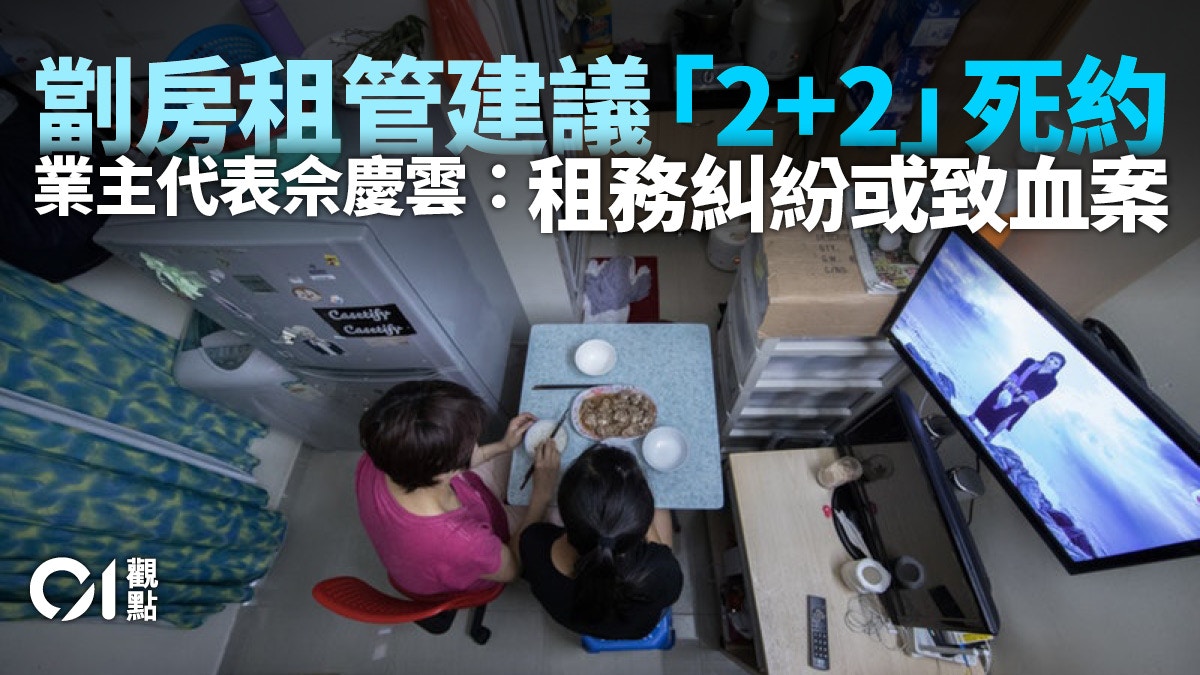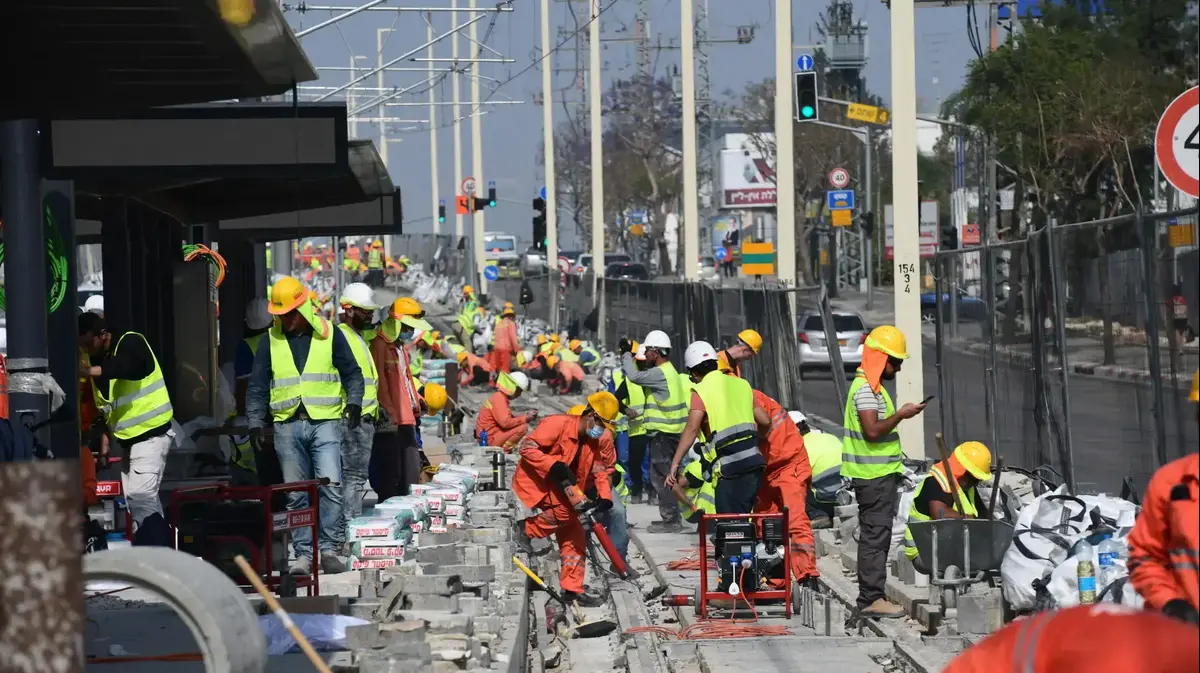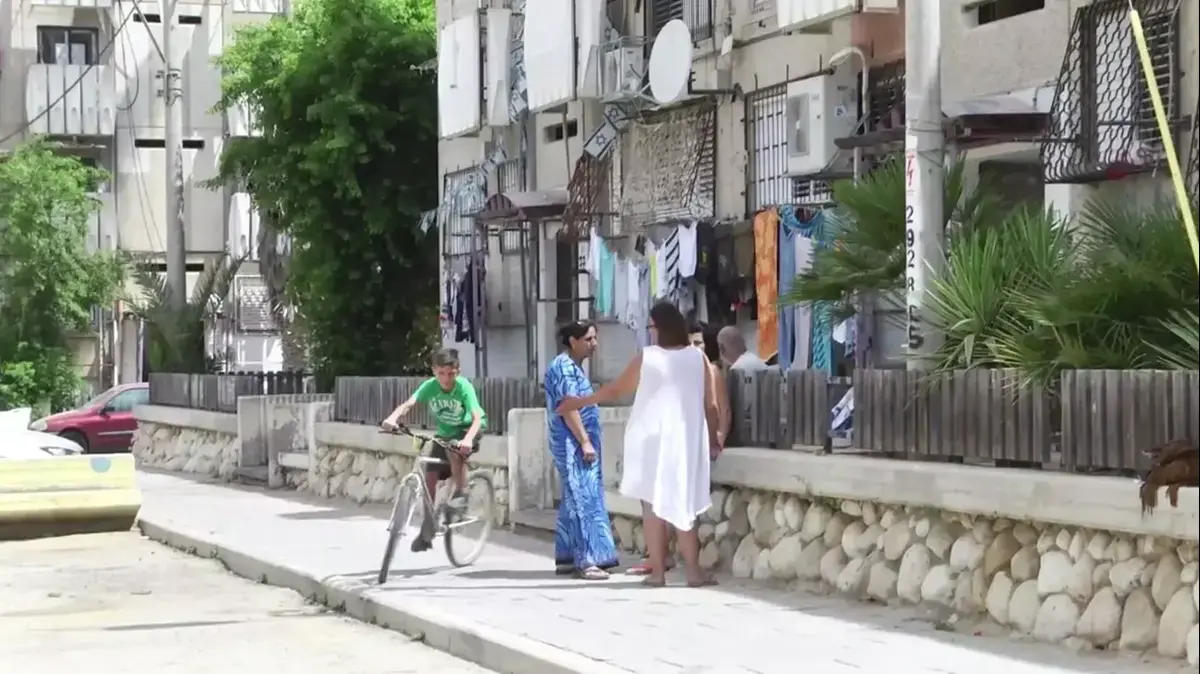01 view
Written by: Commentary Editing Room
2021-04-04 07:00
Last update date: 2021-04-04 07:00
The "Subdivided Housing" Rent Control Research Working Group released a research report (hereinafter referred to as the "Report") on Wednesday (March 31), expounding the statistics of subdivided housing in Hong Kong, and recommended the government to legislate on rent control to protect the rights and interests of tenants .
The group’s recommendations have been too conservative, but the chairman of the Hong Kong Owners’ Association, She Qingyun, still vigorously criticized the proposal the next day and described it as "punishing the owners." This is undoubtedly an overreaction.
Instead, the government should pay attention to the fact that landlords may increase rents significantly during the "window period" of the legislation, so that tenants may not see their advantages and see their disadvantages.
According to the "Report" statistics, a total of 29,897 units in all private residential and mixed-use buildings in Hong Kong aged 15 years or above are used as residential "subdivided houses". The number of "subdivided houses" is 100,943, and the number of residents is 100,943. There are an estimated 226,340 people.
There are also 6,927 properties in the industrial and commercial building used as residential "subdivided housing."
In terms of living area, about 63% of households have a living area of less than 140 square feet, and the median living area per capita is only 71 square feet.
Last year, the median monthly income of "subdivided housing" households was 15,000 yuan, and half of the households were waiting for public housing.
In terms of rent, the median monthly rent for "subdivided houses" is 4,800 yuan, and the median monthly rent per square foot is 38.8 yuan. Residents must use one-third of the monthly income to pay the rent.
The average monthly rents for residential units of less than 40 square meters in the New Territories and Kowloon areas are 28 yuan and 34.7 yuan per square foot. For example, in Yoho Town, where many middle-class residents live in Yuen Long, the average rent per square foot is only more than 30 yuan, too. It is lower than the "subdivided housing" level.
The emergence of this strange phenomenon undoubtedly reflects the inability of the landlord to afford the rent at the grassroots level and exploits and squeezes each other with expensive small units.
Leung Wing-hsiung released the report of the working group, stating that the standard lease agreement for sub-divided housing should be regulated, and the rent increase should not be higher than 15%, and the rate of change in the private residential building rent index of the Department of Valuation must be referred to.
(Photo by Luo Junhao)
The group recommends that moderate owners still object
The group put forward six types of control recommendations, including requiring landlords and tenants to formulate a "standard tenancy agreement", the tenant has the right to give the landlord one month's notice to terminate the tenancy after the "term of contract", the landlord collects water from the tenant, and electricity bills, etc. Must not exceed the amount stated in the bill, etc.
At the same time, the group also recommends the introduction of a priority renewal right after the first two years of the lease, that is, the tenant can rent for four consecutive years, and the rent increase must not exceed the change in the private residential rent index in the past two years, and it will be 10%. Half is the upper limit.
The 15% increase ceiling is obviously too high, but the owners' representatives are still very dissatisfied with the plan.
She Qingyun, president of the Hong Kong Landlords Association, earlier described the plan as "fighting landlords," and that the priority renewal rights recommended by the group were "not even human." He even pointed out that some landlords gave up operating sub-divided houses and returned their flats for sale.
On Thursday (April 1), he stated on the radio program that if there is a problem between the tenant and the landlord, the tenancy agreement cannot be terminated under the "2+2" arrangement. He believes that the government should replace the priority renewal with a one-year "run-in period" right.
However, She's concerns are not only a few extreme cases, there are also renting courts that deal with violations of both parties.
Furthermore, given the extremely high demand for sub-divided housing, even after the rent control takes effect, the return of the landlord’s continued "sub-letting" of the unit will be higher than that of renting out an entire unit, and returning the unit will involve an additional hundreds of thousands of dollars. The cost of decoration, so owners who are in the lead will not give up a higher return.
Be cautious about accelerating the increase in supply during the window period
Instead, the government must try to protect the rights of tenants in the "window period" of legislation.
As stated by the Joint Concern for Grassroots Housing, during the "window period", the landlord may increase rent significantly or suspend the tenancy agreement, turning tenants into victims of rent control.
Furthermore, the group recommends that the rent increase be capped at 15%. Although it is a cap price, once the upper limit is reached, it is not affordable for basic households. The authorities may consider adjusting the upper limit to 10%.
Even if the rent-control restriction market may cause some people to abandon their operations, which in turn affects the supply of "subdivided housing," such extremely exploitative units as "subsidiary housing" should never exist.
The government's housing supply must keep up with demand. In the short term, it is possible to transition housing to alleviate the urgent needs of the grassroots in exchange for time to wait for public housing.
"Subdivided housing" rent management should be swept into history as soon as possible along with the "subdivided housing" itself.
It is urgent to ban "subdivided housing" in industrial buildings
Transition of hotels and guesthouses into transition houses
Subdivided housing team must rein in the precipice to regulate rents
Regulate unscrupulous intermediaries to combat sub-house chaos
01 Views of Sub-Flat Transportation and Housing Bureau









